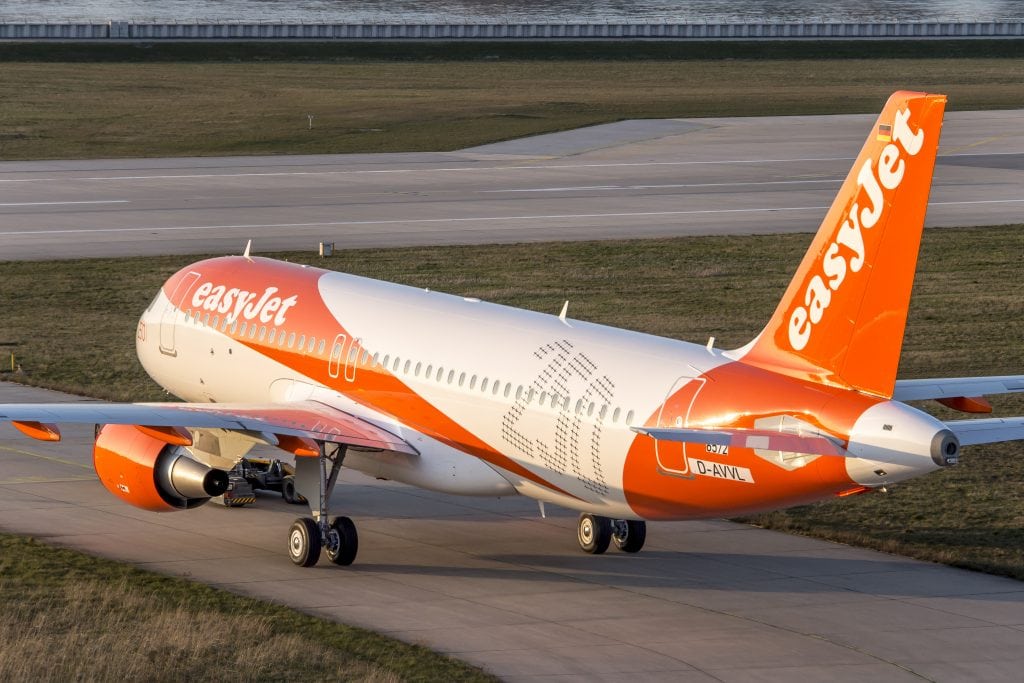Skift Take
If the UK economy moves into recession, companies will look to slash their corporate travel budget. Full service carriers like British Airways are likely to take the bigger hit, which could benefit low-cost airlines like easyJet.
The last few months have been pretty miserable for low-cost airline easyJet.
The UK-based carrier has seen its share price cut by almost a third in the wake of the Brexit vote as it warned of “additional economic and consumer uncertainty” over the summer.
easyJet has already had to deal with the impact of the Brussels terrorist attacks as well as a series of air traffic control strikes. All of which impacted the airline’s performance in its third quarter, which ended June 30.
However, the results did include one particular bright spot: The number of business passengers actually increased 6 percent. A small rise but an impressive one, given the unhelpful operating environment.
Going beyond budget
easyJet has been courting the business travel market for a number of years. It was the one of the first low-cost carriers to make its inventory available to agents back in 2007.
Since then it has introduced flexible fares and created a dedicated sales team to service the needs of the business travel sector and this year the airline has renewed long-term deals with Travelport, Sabre and Amadeus, signalling its intent to stay in the market.
Business travellers fly year-round, helping airlines to smooth out the seasonal peaks and troughs of their business.
easyJet’s success in breaking into the market means that around 20 percent of its passengers are deemed to travel for business, something that has not gone unnoticed elsewhere.
Rival Ryanair was comparatively slow to react, only rejoining the global distribution systems in 2014. CEO Michael O’Leary had previously described agents as “dead wood” and a “waste of bloody time.”
What has changed?
easyJet’s recent success contrasts with that of one of its rivals, showing that Brexit will produce winners and losers in the corporate travel field.
International Airlines Group, which includes the likes of British Airways and Iberia, revealed that even before the Brexit vote, its corporate travel business was struggling.
“What we have witnessed lately, through June coming up to the vote, was a slowdown in booking. And it’s obviously much easier for us to recognize that when we look back at the trends and we can correlate the change in behavior with the increasing concern that the vote would go to leave,” CEO Willie Walsh said on the company’s second-quarter earnings call at the end of July.
“What we’ve seen since then, we didn’t see any change in the passenger cancellation, none whatsoever. In fact, there has been I would say no change in behavior there. So we’re not seeing corporates canceling; what we saw was corporates not booking and these are principally UK-based corporates.”
Contrast Walsh’s views with those of easyJet CEO Carolyn McCall, who believes that her airline could stand to benefit from the uncertainty in the market.
“[I]t’s really interesting because when I was ttalking to Heathrow and BA as well, they’ve seen a real pre-Brexit and then post-Brexit. hey’ve seen a real decline in business passenger demand particularly U.S. so their numbers are really down,” she told analysts.
“Whereas our numbers are up, so we’ve actually seen underlying because it’s the move … We’ve seen a 6 percent increase in business passengers and we’ve signed 23 more corporate deals.”
“So I think actually in a time of kind of uncertainty or difficulty where people are saying maybe the pound is going to stay down for a bit, there’s always that slight value. People come to us because we’re great value and we have. And I think that would increase actually.
“That happened last time around we gave us a fantastic opportunity for people who had never flown easyJet to reappraise easyJet and fly on business with easyJet and I think actually that is probably likely to happen again.”
With easyJet being buffeted by all kinds of external problems, an uptick in corporate travelers is a potential silver lining.
The Daily Newsletter
Our daily coverage of the global travel industry. Written by editors and analysts from across Skift’s brands.
Have a confidential tip for Skift? Get in touch
Tags: airlines, brexit, british airways, easyjet, iag, ryanair
Photo credit: An easyJet aircraft. The airline has been successful in marketing itself to corporate travelers. Mark Lennihan / easyJet
